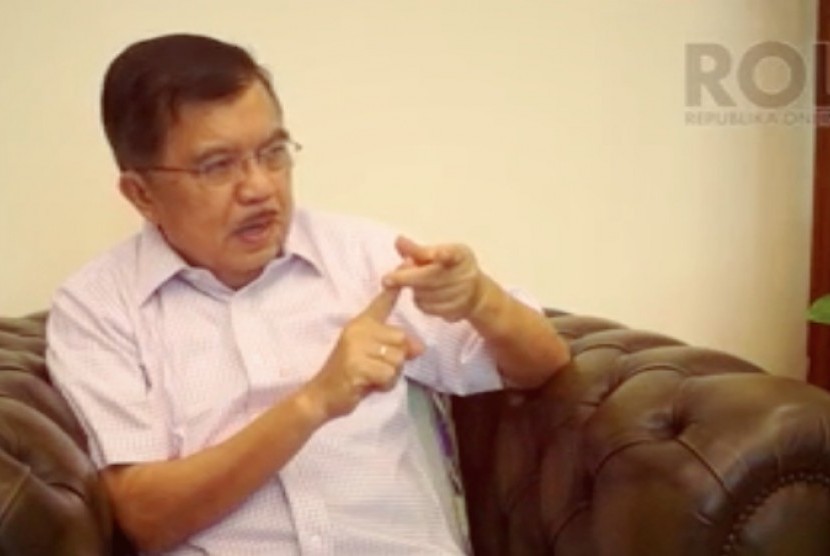REPUBLIKA.CO.ID, JAKARTA -- The Corruption Eradication Commission (KPK) leaders must not have absolute authority, and therefore, a revision of Law No. 30 of 2000 on the KPK will be considered, Vice President Jusuf Kalla stated.
"An authority indeed has to have limits, and so, it means the KPK's authority also must be within limits. There must be no absolute authority," he noted here on Thursday.
He affirmed that the most important aspect is to supervise the institution, so that it can be held accountable for its activities.
"What is important is how we measure its responsibility," he added.
Regarding plans to review the KPK law, the vice president noted that the revision would not always mean that the role of the anti-graft agency would be reduced.
"I believe it is not meant to reduce the role of the KPK but instead to improve it," he affirmed.
The proposal for reviewing the KPK law, which has already been included in the national legislation program of 2015, has drawn criticism from several anti-corruption activists.
Meanwhile, the KPK leadership is apprehensive that the revision could weaken the institution especially with regard to its authority to conduct wiretapping activities.
"I do not know well if the idea is the initiative of the House of Representatives (DPR), but it seems it will reduce or even dwarf the KPK's authority especially with regard to conducting wiretapping," Acting KPK Commissioner Indriyanto Seno Adji stated.
Minister of Justice Yasonna Laoly has confirmed that the revision was the initiative of the DPR put forth after contemplating that several provisions need to be reviewed with regard to building a clean state and strengthening institutions dealing with corruption such as the police, the prosecutor's office, and the KPK.
"The review is firstly connected with the wiretapping authority. Wiretapping should be allowed only on parties who have been judicially processed to prevent human rights violations," the minister emphasized.
Other issues are the KPK's prosecution authority, which needs to be in synergy with the Attorney General's Office; the need to set up a supervisory board; regulation on the implementation of the tasks of commissioners in case they are unable to conduct their duties; and ways to strengthen the regulation on collective-collegial leadership.


